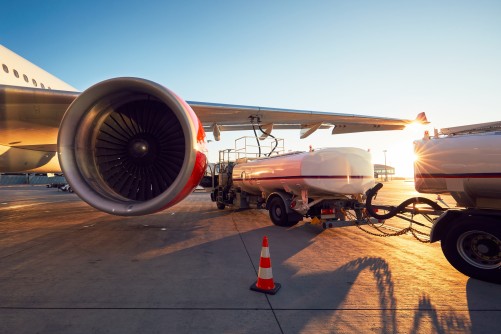Thai researchers have developed a method to produce aviation biofuel using yeast fed with forage grass. This innovative approach aims to reduce reliance on petroleum-based fuels and minimize environmental impact.
A team from Chulalongkorn University’s Faculty of Science is scaling up production of aviation biofuel derived from a high-fat-producing yeast strain. Their method also repurposes agricultural waste, addressing burning problems and creating value from farm byproducts.
Yeast: From Beer to Biofuel
Yeast, a microorganism crucial in food and beverage production, may soon play a key role in renewable fuel generation. The researchers isolated a strain of Saccharomyces cerevisiae yeast (CU-TPD4) with exceptional fat accumulation abilities.
Prof. Dr. Warawut Chulalaksananukul, project leader, explained: “The team has been successful in the separation of Saccharomyces cerevisiae yeast (CU-TPD4 strain) that has a high potential for fat accumulation. We have used yeast to produce biojet fuel to meet future energy demand. If we can develop Thailand’s potential in the production of bio-jet fuel, it would help our economy progress as well.”
This research comes at a critical time. Thailand’s jet fuel imports have skyrocketed from 84.9 million liters in 2016 to 376.3 million liters in 2019, highlighting the urgent need for sustainable alternatives.
From Agricultural Waste to Clean Energy
The team’s approach not only produces cleaner energy but also utilizes agricultural waste, supporting a circular economy and reducing air pollution from crop burning.
“In addition to animal fodder grass, agricultural waste and various types of lignocellulosic biomass can be used as carbon sources to feed fat-accumulating yeasts for example, rice straw, corn cobs, sugarcane bagasse, as well as various vegetable and fruit peels such as banana peels, durian peels, and bean shells, especially rice straw, which is a large amount of waste material in Thailand. Therefore, it is considered another way to use agricultural waste to be beneficial as well,” Prof. Dr. Warawut noted.
The researchers are now focusing on scaling up production and improving yeast strains to increase oil yield. They’re collaborating with PTT Public Company Limited’s Biological Engineering and Precision Fermentation Laboratory to evaluate and optimize the biofuel production process.
Beyond aviation fuel, this research opens doors to producing high-value fatty acids for food, cosmetics, and pharmaceuticals, supporting sustainable life science industries.
As the world seeks alternatives to fossil fuels, this Thai innovation offers a promising path toward greener skies and a more sustainable future.
If our reporting has informed or inspired you, please consider making a donation. Every contribution, no matter the size, empowers us to continue delivering accurate, engaging, and trustworthy science and medical news. Independent journalism requires time, effort, and resources—your support ensures we can keep uncovering the stories that matter most to you.
Join us in making knowledge accessible and impactful. Thank you for standing with us!

